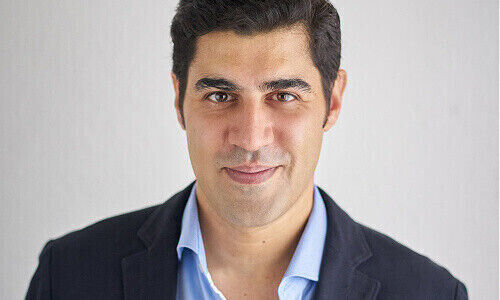Parag Khanna: «Russia is Really Part of the North Asia Hemisphere»
Countless Russians have wanted to leave their home country since the invasion of Ukraine. Those already abroad face potential sanctions.
The Ukraine war has resulted in a drastically changed geopolitical scene in Europe and Asia, said Christian Kälin, a lawyer talking at a panel discussion recently in Zurich. He is the chairman of global consultancy Henley & Partners, which specializes in residence and citizenship planning.
Russia is currently experiencing the world's largest outflow of millionaires, according to Kälin. He is predicting that up to 15,000 affluent individuals will be leaving the country by the end of 2022, corresponding to about 15 percent of that country's wealthy people.
Unstable Situation
Given the high levels of instability currently prevalent worldwide, even a high number of EU citizens are considering double citizenship as well, Kälin indicated further. A changing political environment can have a dramatic impact on migration as the example from China shows, where around 10,000 millionaires are expected to leave this year.
It was an event organized by Henley & Partners, with monthly Swiss business magazine «Bilanz» and finews.ch as media partners. Others in the panel included Swiss heart surgeon Paul Vogt, leading global strategist, world traveler, and author Parag Khanna and finews.ch founder Claude Baumann. The panel was moderated by «Bilanz» chief editor Dirk Schütz.
Images from the recent event:
The panel members did not agree on the future role of Russia in the world. Khanna was convinced that Russia will have no choice but to move even closer to China. Economic ties will intensify and the western view of Russia as an Eastern European country is wrong. It is much more the case that Russia is really part of the North Asia hemisphere.
Worked Extensively in Ukraine
That reinterpretation of the geopolitical map did little for Paul Vogt. As the founder of the EurAsia Heart Foundation, he worked for many years in Ukraine and Russia for those afflicted with heart defects. He is convinced that Russians feel like they belong to Europe. Beyond that, about 80 percent of Russian live in the European parts of the country.
Khanna said he does not expect Russia's steps to distance itself from Europe to result in a closer relationship with China's regime. Chinese companies have been expanding their presence in Russia since 2008 but this increased dependency will not lead to deeper mutual trust.
No Trust
It is not possible to create alliances in Asia, as no one country trusts the other. In the case of any conflict, Asian countries will simply stand by stoically and then direct their interests and money at the emerging victor afterward.
None of the panelists thought that the globalization trend had truly peaked. Instead, current indications point toward three large economic blocs, the EU, North America, and Asia. They will strive to reach a form of internal autarky by building trade barriers and increasing government intervention as part of economic policy, Khanna indicated. He recently published his book «Move» which deals with the global issue of migration.
Alpine Oasis
Khanna called Switzerland an «alpine oasis». When it came to climate change, Khanna indicated that the water table in the alps could end up being another advantage for the country. In any case, the country already has an almost magical formula of stability, high mobility, and excellent networks in many different areas, something that will only strengthen with time.
He also diagnosed a few areas for improvement that he had gleaned from his international research on the values prevalent among the up-and-coming generations. Most young people characterize themselves as ecological, and tolerant, and would like to have an exemplary educational system available as well as stable jobs afterward instead of constantly hopping from job to job.
The younger generations have grown used to making decisions based on data and rankings and country comparisons are studied very closely.
Competition for Swiss finance
Swiss finance will be able to defend its position as a safe haven for the foreseeable future, all the panelists maintained. But it is an unavoidable fact that the reputation of the banking hub is eroding when you look at the situation closely, emphasized Claude Baumann, founder of finews.ch.
He referred to the recently published «Global Wealth Report 2022» study by Boston Consulting Group (BCG), which predicted that the Asian financial hubs of Singapore and Hong Kong would overtake Switzerland as an offshore center by 2026.
Fickle Government
The Swiss government is being fickle and sending mixed signals when it weakens neutrality by fully coopting the EU sanctions regime against Russia, as it did recently. Both the finance sector and government should not take anything for granted and do their homework. The situation has become particularly complicated for Russians living abroad, whose assets have been partly blocked in some cases.
That has shaken trust in Swiss finance, Baumann said. A liberal economic regime and the strength of the Swiss political system, particularly at the community level, are important pillars that will ensure a conducive environment for the next generation, Baumann said.



























